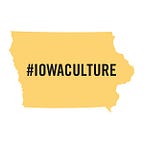‘Barn Raisers’ Film Explores ‘Country Cathedrals’
For Kelly Rundle, barns are a magical place.
He spent some of his first summers on his grandfather’s farm in Wisconsin, marveling at the “country cathedrals” of the Midwest.
“There are plenty of things to explore in the area and one of those things is a barn,” he told the Los Angeles Times. “To a kid, it’s a magical place with so many sights, sounds and atmosphere.”
These days, Kelly and his wife, Tammy, are Emmy-nominated filmmakers who rekindled his love affair with Midwest barns in a new documentary called “The Barn Raisers.”
Speaking to Iowa Public Radio, Tammy said she understands the subject is not the sexiest idea for a documentary, and she hesitated when Kelly suggested doing an hour-long feature about the creation and history of barns.
“I was like, ‘Ooo-kay . . . we’ll give this a shot,’” she told IPR. “But, as is often the case with our documentary subjects, I caught the bug. And probably the most inspirational and wonderful part of the project was hearing these stories, and that really is the soul of the film. That is what brings these barns to life again.”
To create the movie, Kelly and Tammy studied barns through the lens of architecture, looking at building methods, styles and materials for clues about the people who built them, the lives they led, and the role they played in settling and building the nation.
“Barns are part of the American assimilation story,” Kelly said the other day over the phone. Immigrants and settlers “brought their traditions here and combined them with construction materials in the areas where they were built. That tells us a lot about who they were and how they lived.”
The Rundles, who live in the the Quad-Cities and work through Fourth Wall Films, left no stones unturned in their research:
- They filmed in Iowa, Kansas, Michigan, Ohio and Wisconsin, and looked at the impact of German, English, Swedish and Norwegian cultures on barn building.
- They studied field-stone foundations, timber frames, log barns and other architectural designs, and reviewed different cropping systems and livestock needs for barns.
- They also talked to historians, artists, architects, preservationists and farmers who still own barns.
“The main thing about it, though, is the people who built and designed barns are a bit of mystery,” Kelly said. “They didn’t keep track of the barns they built and they didn’t sign them, but we know a few and they’re featured in the film.”
Algie Shivers was one of those builders. The son of a former slave, he studied carpentry in Missouri and specialized in building round barns that could accommodate new dairy farm technologies.
Considered “progressive and prosperous” in the 1890s, round barns remain a distinctive part of the Midwest’s agricultural heritage and have a direct connection to the Cheyenne Valley, the largest rural African-American settlement in Wisconsin during the 19th century. The area retains the highest concentration of round barns in the nation, and one-half of those that still stand were built by Shivers.
“So, ultimately, this is a film about people and how we interact with (barns),” Kelly said. “I’m hopeful that as people see it, it’ll be hard for them to just look past barns again. They’ll know how important they have been to the development and growth of the country.”
So far, the early reviews have been overwhelmingly positive:
“‘The Barn Raisers’ feels like a hymn to the solemn beauty and importance of these buildings, and the Rundles treat them with the reverence they deserve,” film reviewer Jonathan Turner wrote in the Dispatch-Argus in the Quad Cities.
Quad City Times film critic Linda Cook gave the film 4 out of 4 stars and wrote: “Great documentaries, like this one, entertain, teach us about the human condition and help us see the world in a different way.”
The movie made its broadcast premiere in March and was an official selection at the by-invitation-only Newport Beach Film Festival this April in southern California, where more than 50,000 attendees viewed films from around the world.
…
A screening of “The Barn Raisers” will take place during the 2017 Preserve Iowa Summit June 8–10 in Fort Dodge. More information and registration are available at www.iowaculture.gov.
— Jeff Morgan, Iowa Department of Cultural Affairs
